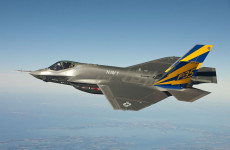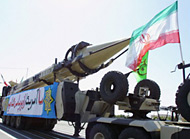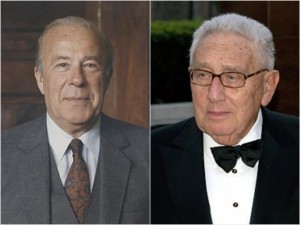
The diplomatic fog is slowly lifting over the Iranian nuclear crisis. After the latest March 31st deadline for America’s controversial talks with the Iranians, and after Prime Minister Binyamin Netanyahu’s upcoming address to the U.S. Congress it should be visible, to all who wish to see, whether President Barak Obama has agreed to a bad deal that will allow the Ayatollahs in Tehran to eventually get their hands on A-bombs. In light of the U.S. conduct of the talks it is looking more and more like a fait accompli: the sides are simply going through the motions now and doing the fine tuning on the done deal.
Forget about Israeli leaders like Netanyahu and pundits like me who take a grim view of how Iranian President Hassan Rouhani and Foreign Minister Javad Zarif have been conning Kerry and Obama. (Why wouldn’t they be grinning all the time if they’re getting their way?).
The impact will be to transform the negotiations from preventing nuclear proliferation (in the Middle East) to managing it.
At this point, things do not look promising. Two former U.S. secretaries of State, Henry Kissinger and George Schultz, expressed serious misgivings when they testified before a recent hearing of the U.S. Senate’s Armed Services Committee. Kissinger stressed that the original goal of the negotiations was “to deny Iran the capability to develop a military nuclear option.”
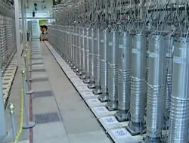
But instead of that, Kissinger concluded that the negotiations have now become an essentially bilateral negotiation between the U.S. and Iran that has focused on something else altogether:“the scope of that (nuclear) capability, not its existence.”
It has become evident the Obama administration is ready to let Iran maintain an infrastructure of thousands if centrifuges that hopefully would give the U.S. and its allies one year’s time before Iran could actually develop a nuclear arsenal. This, Kissinger cites as another major flaw:
“The impact will be to transform the negotiations from preventing nuclear proliferation (in the Middle East) to managing it.”
Kissinger then takes issue with the negotiating skills of Obama and Kerry who have overlooked one glaring element in their rush to close a deal with Tehran:
And if the other countries … insist on the same capability, we will live in a proliferated world in which everybody – even if the agreement is maintained – will be very close to the trigger point.”
“If the accord takes account of (Iran’s) stockpile of nuclear materials that already exists, the question then is what do the other countries in the region do? And if the other countries conclude that America has approved the development of (Iran’s) enriched capability to within one year of a nuclear weapon, and if they insist on the same capability, we will live in a proliferated world in which everybody – even if the agreement is maintained – will be very close to the trigger point.”
And Prof. Kissinger nearly gives President Obama an ‘F’ in International Relations before he concludes:
“In the space of one year, that will create huge inspection problems, but I’ll reserve my comment on that until I see the agreement.”
George Schultz, another former Secretary of State, also told the Senate hearing that he was ‘very uneasy’ about the ongoing talks with the Iranians:
“They’ve already outmaneuvered us, in my opinion.”
Perhaps Netanyahu hopes that if he can expose some new and startling aspects of Iran’s nuclear program when he address Congress on March 3rd; this could turn back the nuclear clock.
Apparently Israel’s leader hopes it is still not too late to prevent Iranian leaders, who openly call for Israel’s annihilation, from acquiring nuclear missiles. (The Iranians have just launched another ballistic missile into space). Perhaps Netanyahu hopes that if he can expose some new and startling aspects of Iran’s nuclear program when he address Congress on March 3rd; this could turn back the nuclear clock. First there is public opinion, not only in America but also among its European partners, who may not be as eager as Obama, who wishes to leave office with a nuclear agreement under his belt.
On the other hand, Obama does not want to be ridiculed for forging a faulty nuclear deal with Iran, one that will not stand up to the criticism of Kissinger and Schultz, let alone Netanyahu. Nor does he want his legacy of a nuclear accord to unravel in the future.
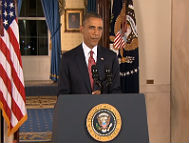
The President will have to balance the nuclear accord with his predisposition to end America’s active military involvement in the Middle East. On this score, American public opinion is sick and tired of paying in blood and treasure in the endless conflicts in this part of the world. Moreover the U.S. is no longer dependent on Middle East oil. America will no longer play the role of the world’s policeman – soft power is his solution.
Obama’s warning of ‘all the options are on the table’ has long gone by the board. But Barack Obama will not like to be compared to a Neville Chamberlain, so he will likely present a fallback position – containment.
On the other hand, the Iranians are neither stupid nor foolish. They will cash in on the lifting of sanctions and sign lucrative deals with American and European companies that are lining up. Then in another two years or so, when Obama leaves the White House, it will be up to his successor to cope with an Iranian breakout for the Bomb. You don’t have to be a Henry Kissinger to realize that Obama’s warning of ‘all the options are on the table’ has long gone by the board. But Barack Obama will not like to be compared to a Neville Chamberlain, so he will likely present a fallback position – containment. Didn’t it succeed for America in the Cold War with the Soviet Union? But as Kissinger and Schultz have pointed out, the Middle East is a different kettle of fish altogether.
 Obama’s first Secretary of State Hillary Clinton once spoke of America providing a ‘defensive umbrella’ for the Middle East against an Iranian nuclear threat. However containment, or the concept of an American defensive umbrella, will not play in Jerusalem, Cairo, Riyadh or Ankara. Obviously the Sunni Muslim states will consider proliferation as an option.
Obama’s first Secretary of State Hillary Clinton once spoke of America providing a ‘defensive umbrella’ for the Middle East against an Iranian nuclear threat. However containment, or the concept of an American defensive umbrella, will not play in Jerusalem, Cairo, Riyadh or Ankara. Obviously the Sunni Muslim states will consider proliferation as an option.
Does he really believe that he can coddle radical Iran into mending its ways after it has been up to its neck in fomenting terror atrocities around the world, now most glaringly in Buenos Aires?
What is most perplexing in Obama’s statecraft is this: if the American President led the campaign to impose international sanctions to deter Iran from continuing its nuclear weapons program, why has he caved in on going all the way? Does he really believe that he can coddle radical Iran into mending its ways after it has been up to its neck in fomenting terror atrocities around the world, now most glaringly in Buenos Aires? This is compounded by his apparent readiness to leave Ayatollah Ali Khamenei and his Revolutionary Guards with the actual nuclear infrastructure to build A-bombs in the future. In addition, will he also let the genie out of the bottle on nuclear proliferation in the region?
Something doesn’t make sense and this is what has apparently left Schultz and Kissinger so ‘uneasy’. Does Obama truly believe that after all the sanctions are lifted and the Iranian economy picks up that the Shiite fanatics, who rule Iran with an iron fist against their own people, will suddenly see the light and jettison their religious and regional aspirations? This kind of thinking is as cockeyed as the play by the Seattle Seahawks to throw a forward pass from the one-yard line on the first down in the last minute of the Super Bowl.


